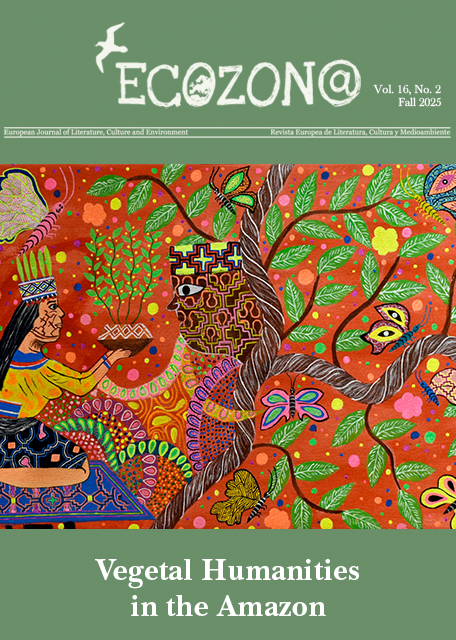Ecocriticism, Biopolitics, and Ecological Immunity
DOI:
https://doi.org/10.37536/ECOZONA.2020.11.2.3542Schlagworte:
Biopolitics, ecocriticism, Roberto Esposito, Garrett Hardin, Lynn Margulis, Neomalthusianism, Elinor Ostrom, symbiogenesisAbstract
Ecocritics tend to think of environmentalism as a form of resistance against the anthropocentrism of Western modernity. Such a view stands in contrast to biopolitical theory, which sees modernity in terms of a naturalization of the human and a generalized effort to increase the productivity of life that cuts across species lines. Building on the work of Roberto Esposito, this process can be described as a radicalized form of ecological immunization whereby humans and their domesticates are protected from the risks that attend membership in ecological communities, resulting in an “unnatural growth of the natural” (H. Arendt). The self-destructive strategies of immunization which characterize biopolitical modernity are based on a conception of life in terms of competition over scarce resources, inevitably leading to Malthusian crises. Lynn Margulis’ understanding of evolution as symbiogenesis offers an alternative on which an affirmative biopolitics balancing the demands of immunity and community can build.
Downloads
Downloads
Veröffentlicht
Ausgabe
Rubrik
Lizenz
Authors who publish with this journal agree to the following terms:
a) Authors retain copyright and grant the journal right of first publication with the work simultaneously licensed under a Creative Commons Attribution License that allows others to share the work with an acknowledgement of the work's authorship and initial publication in this journal (CC BY-NC for articles and CC BY-NC-ND for creative work, unless author requests otherwise.
b) Authors are able to enter into separate, additional contractual arrangements for the non-exclusive distribution of the journal's published version of the work (e.g., post it to an institutional repository or publish it in a book), with an acknowledgement of its initial publication in this journal.
c) Authors are permitted and encouraged to post their work online (e.g., in institutional repositories or on their website) prior to and during the submission process, as it can lead to productive exchanges, as well as earlier and greater citation of published work (See The Effect of Open Access).










